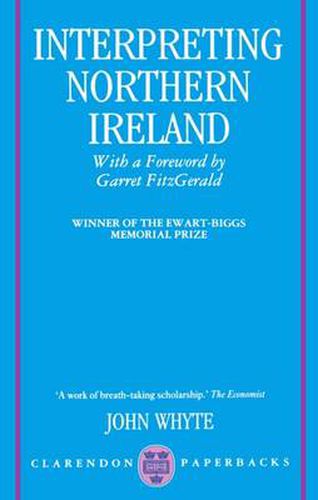Readings Newsletter
Become a Readings Member to make your shopping experience even easier.
Sign in or sign up for free!
You’re not far away from qualifying for FREE standard shipping within Australia
You’ve qualified for FREE standard shipping within Australia
The cart is loading…






Relative to its size Northern Ireland is possibly the most heavily researched area on earth; hundreds of books and thousands of articles have been published since the current troubles began in the mid 1960s. John Whyte had been studying Northern Ireland since the mid-1960s. In Interpreting Northern Ireland he provides a badly-needed guide to the mass of literature and comment. In Part I, he surveys the research on the nature and extent of the community divide, examining in turn the religious, economic, political, and psychological aspects of the issue. In Part II he discusses ideological interpretations of the Northern Ireland problem, from unionist and nationalist to Marxist. In the final section of the book he surveys the various solutions that have been proposed and looks critically at what the mass of research has achieved. He suggests that if it has not achieved more it may be because it has sometimes asked the wrong questions.
$9.00 standard shipping within Australia
FREE standard shipping within Australia for orders over $100.00
Express & International shipping calculated at checkout
Relative to its size Northern Ireland is possibly the most heavily researched area on earth; hundreds of books and thousands of articles have been published since the current troubles began in the mid 1960s. John Whyte had been studying Northern Ireland since the mid-1960s. In Interpreting Northern Ireland he provides a badly-needed guide to the mass of literature and comment. In Part I, he surveys the research on the nature and extent of the community divide, examining in turn the religious, economic, political, and psychological aspects of the issue. In Part II he discusses ideological interpretations of the Northern Ireland problem, from unionist and nationalist to Marxist. In the final section of the book he surveys the various solutions that have been proposed and looks critically at what the mass of research has achieved. He suggests that if it has not achieved more it may be because it has sometimes asked the wrong questions.